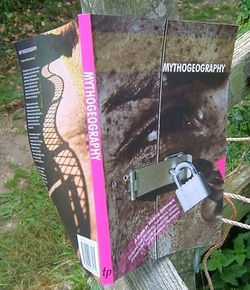Psychogeography vs. MythogeographyPsychogeography arises as one of a set of ideas and practices developed by the International Lettristes (who later gave birth to the situationists), a study of how places affect the psychological states of those who pass through them. With a reciprocal meaning: that the places might be changed in order to change the experiences and mental states of their residents and visitors. This was part of a theory of radical activism for the transformation of cities.
In the UK the concept of psychogeography was detached from activist meaning and reconfigured as a literary practice in the work of writers like Iain Sinclair and also gathered some occult trappings during this time from Sinclair, Peter Ackroyd and others. Mythogeography describes a way of thinking about and visiting places where multiple meanings have been squeezed into a single and restricted meaning (for example, heritage, tourist or leisure sites tend to be presented as just that, when they may also have been homes, jam factories, battlegrounds, lovers' lanes, farms, cemeteries and madhouses). Mythogeography emphasises the multiple nature of places and suggests multiple ways of celebrating, expressing and weaving those places and their multiple meanings. Mythogeography is influenced by, and draws on, psychogeography – seeking to reconnect with some of its original political edge as well as with its more recent additions. While engaging seriously with academic discourses in areas like geography, tourism studies and spatial theory, mythogeography also draws upon what Charles Fort might have described as ‘the procession of damned data’. So, occulted and anomalous narratives are among those available to mythogeography, not as ends in themselves, but as means and metaphors to explain, engage and disrupt. |
|

